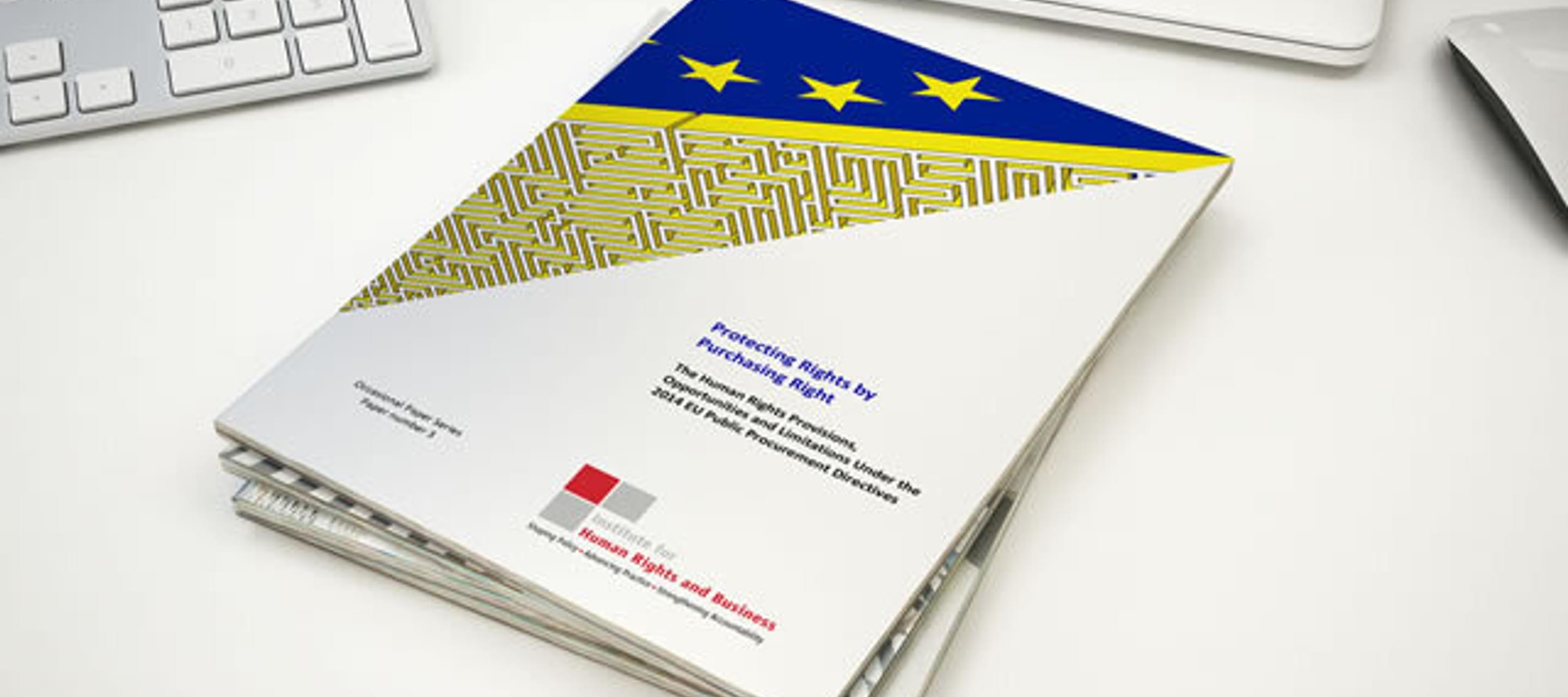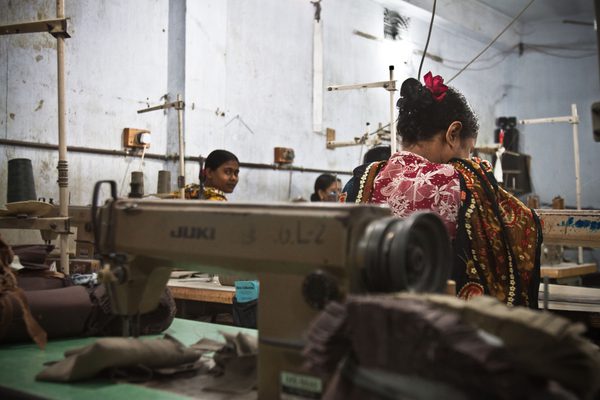New Opportunities to Integrate Human Rights Considerations into EU Public Procurement
3 November 2015

In 2014, three new European Union (EU) Directives governing the way EU Member States purchase goods, works and services came into force.
Public procurement makes up a substantial share of world trade flows, amounting to €1000 billion per year. In the EU, some €425 billion or 3.4% of EU GDP is regulated by the Directives.
Public purchasers are thus important market players who can directly influence commercial behaviour on the basis of the expectations they set for their suppliers and service providers. As the European Commission itself notes, “[g]iven the amount of public money at stake, and the number of public purchasers and suppliers involved, the way in which public procurement is regulated and administered has an immediate and significant influence on the business environment”.
The new Directives explicitly welcome the use of social and human rights related criteria within procurement processes in a way most would not have thought possible only a few years ago. For example, the previous 2004 Procurement Directives they replace used quantitative approaches like “lowest price only” assessments to select between competing tenders, and resigned a narrow range of possible human rights related criteria to the contracting stage at the very end of the procurement process.
The 2014 Directives by contrast emphasise more qualitative approaches and allow a much broader range of social and human rights related measures at all phases of the procurement process – all of which cover not only the main contractor but their subcontractors as well.
There are also limitations from a human rights perspective to the way the new Directives shape EU public procurement processes. In particular, many of the social and human rights related provisions are largely or entirely discretionary on EU Member States as to whether and how to actively implement them. This invites potential inconsistency in the way EU Member State might express their expectations for companies to demonstrate their commitment to respecting human rights in their activities and operations. Implicitly, this raises the risk of a lowest common denominator approach. Policy incoherence at the EU institutional level is also at risk, specifically regarding the EU’s commitment to widespread dissemination and uptake of the UN Guiding Principles on Business and Human Rights.
In particular, a cross-cutting requirement for social and human rights related criteria to be “linked to the subject matter” of the contract means that measures to incentivise company-wide human rights policy commitments and risk management systems are prohibited from being used as tender criteria.
What is needed now from the European Commission is technical and practical guidance on how to implement the new approaches on human rights and social measures set out in the 2014 Directives (see for example similar calls from the European Network of National Human Rights Institutions). The principal EU-issued guidance – “Buying Social: A Guide to Taking Account of Social Considerations in Public Procurement” – released in 2010 is not only out of date, but narrowly interpreted the previous, more limited, 2004 Directives. New guidance needs to offer clear and easy to follow directions on human rights standards, and on why and how these can be incorporated into national and local public procurement processes. A model procurement policy for public authorities and model tool kits for implementation could supplement this guidance, all of which should be developed in a consultative and transparent manner, inviting and giving full-consideration to the submissions received.
In the meantime, it is up to EU Member States to use the wide discretion granted in the 2014 Directives to ensure meaningful and progressive implementation under their national laws and procurement practices. A new IHRB Occasional Paper has been produced to assist EU Member States in understanding the range of opportunities, but also limitations, under the 2014 EU Public Procurement Directives to integrating human rights considerations into their national rules and practices on public procurement.




